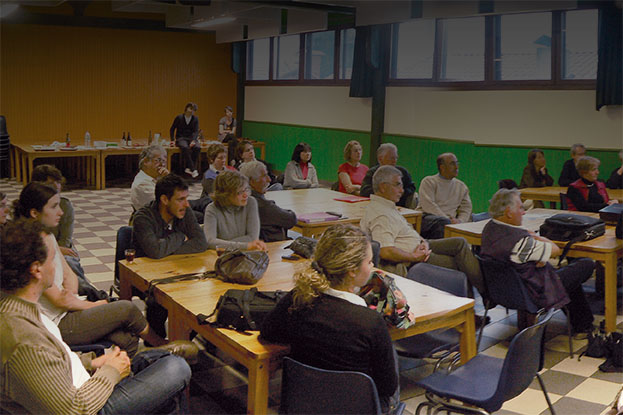In 2015, the ERPS network set up its own cross-institutional PhD support platform; it runs seminars to encourage those wanting to enter this field, and to assist PhD students with their work.
Its educational objectives are to assist with the cross-disciplinary transmission of knowledge, enabling doctoral and other students to build the specific requisite research skills and to acquire the diversity of languages and registers for practice.
In terms of educational processes, we have two key objectives which are specific to PhD-level education:
– to transmit multidisciplinary knowledge of issues relating to spatial planning in rural areas, by organising lectures (and inviting guest speakers).
– to help PhD students to acquire scientific research skills by setting up working groups which will enable PhD students to: write reports on an issue-based scientific debate; lead a scientific debate; be aware of the diverse range of languages and registers for practice.
The « new ruralities » cycle
Since 2015, one of the aims of the ERPS PhD modules has been to inform national debate on the “New Ruralities”.
In France, current academic debate on the urban metropolitan situation has led to an updating of knowledge around issues of territory and the challenges represented by rural territories in particular. The political world has taken up the baton with regard to this changing situation, as evidenced by the recent publication of the manifesto for the defence of New Ruralities, in the report recently submitted by Frédéric Bonnet to Sylvia Pinel, Minister of Housing, Territorial Equality and Rural Affairs.
Born of an experimental inter-departmental cooperation initiative, New Ruralities cover a range of territorial strategies aimed at improving the assets of rural areas. The result of combining economic attractiveness and development, these territorial initiatives deserve closer examination to determine the innovative potential of their economic model, their impact on the spatial, architectural and landscape aspects of territorial planning and, ultimately, the shaping of a new political discourse.
Drawing upon these assessments, the proposed PhD education modules are intended to further examine and understand the methods, conditions and implications of these New Ruralities, by building on this dynamic process of thought and action. The aim of these PhD modules is not only to inform national debate on the New Ruralities, but also to firmly anchor academic research in the territories through partnerships between higher education establishments, local authorities and postgraduate institutions.
More information on the 2015-2016 seminar is available here.
More information on the 2016-2017 seminar is available here.
For more information, go to our news page.


